Publishing a project without clearly indicating which license applies to it prevents anyone from benefiting from it. Choosing a proper license for an open source software will take only a minute if you consult a cheat sheet officially curated by GitHub.
Choose an open source license that best represents your intentions
The Choose an open source license tool presents a simple set of available options right on the landing page:
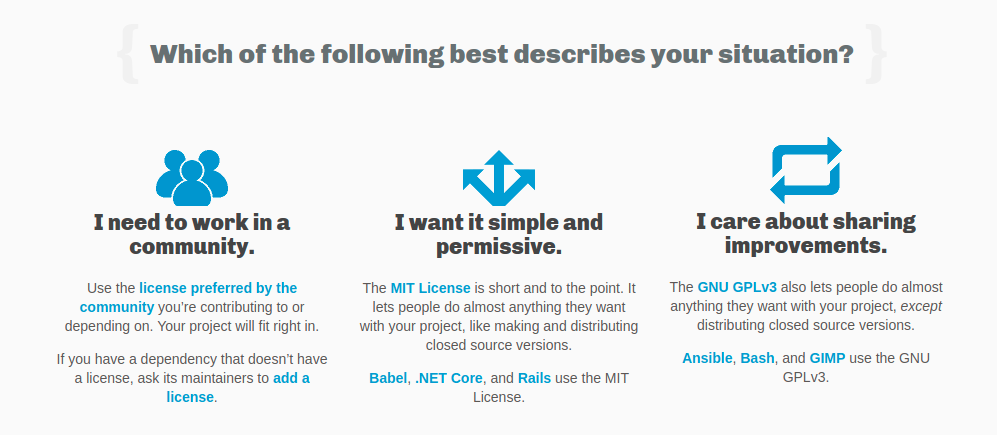
To get a clear license comparison, you can use one of the two cheat sheets available:
- Licenses that neatly compares permissions, conditions and limitations:
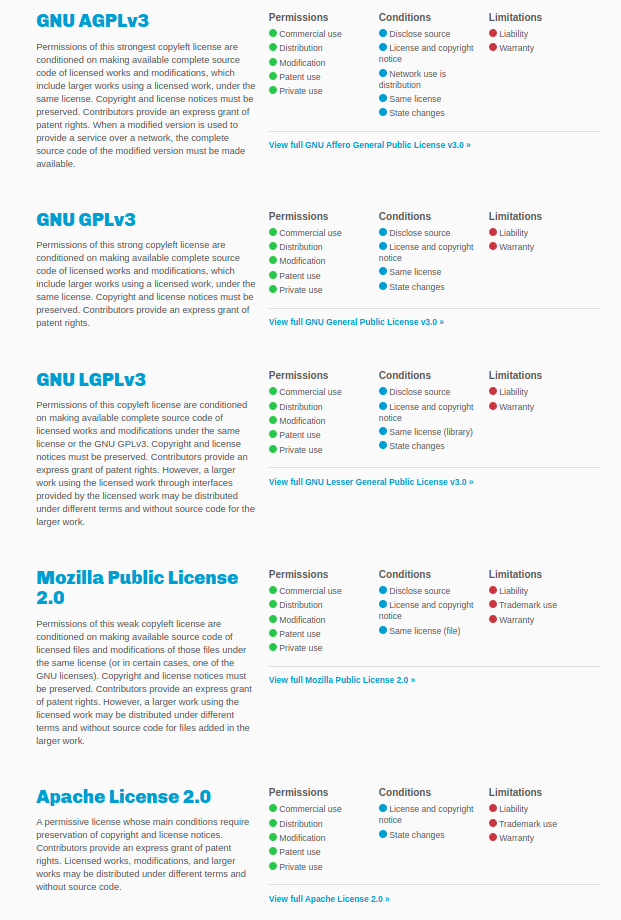
- Appendix that compares all licenses from the choosealicense.com repository in a table:
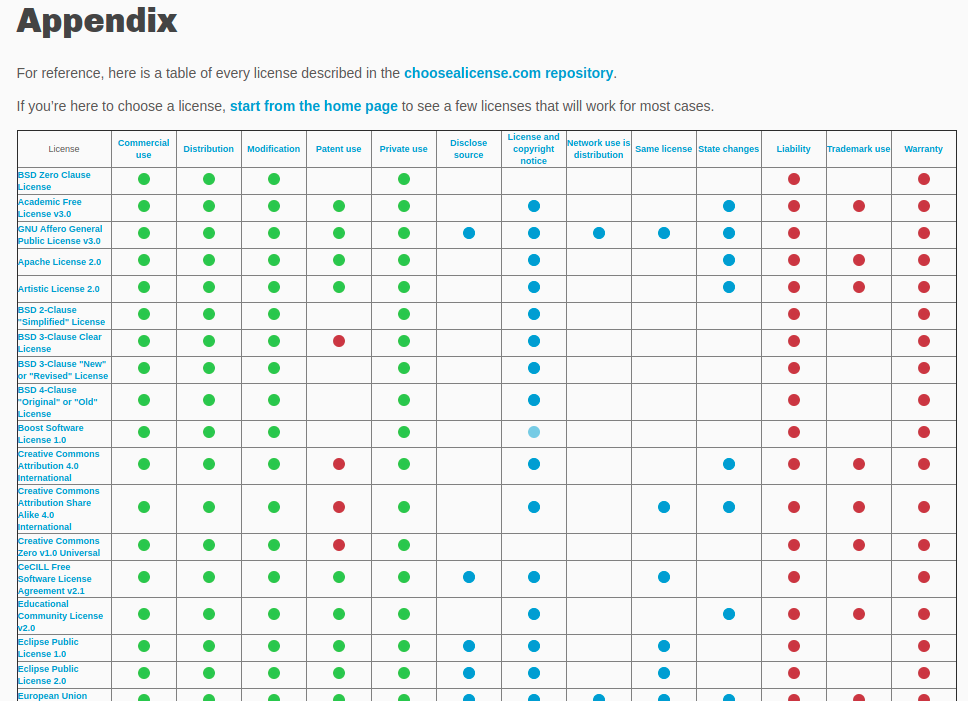
Add a license file directly in your GitHub repository
The license file can be easily added even if the project has already been published. Go to your project repository and follow the steps listed below:
- Select the
Add file → Create new fileoption

- Type the file name then select the
Choose a license template option:

- Next, select a license from the provided list and commit the changes:
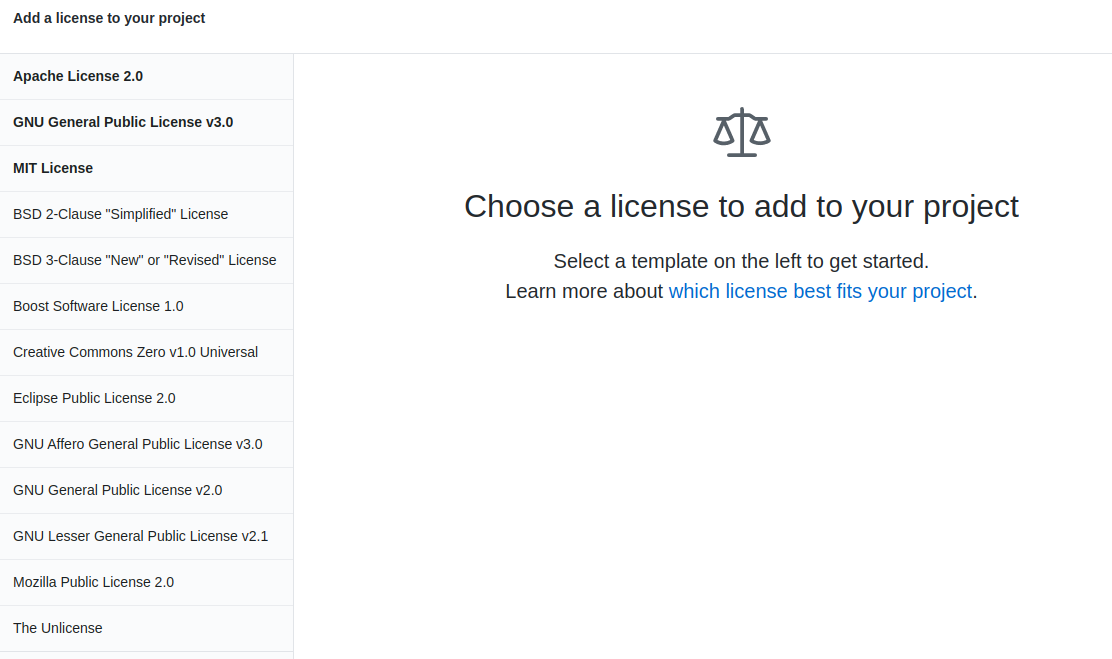
The license is now visible in the About section of your project:

Furthermore, when you browse a list of repositories you can also see their licenses:
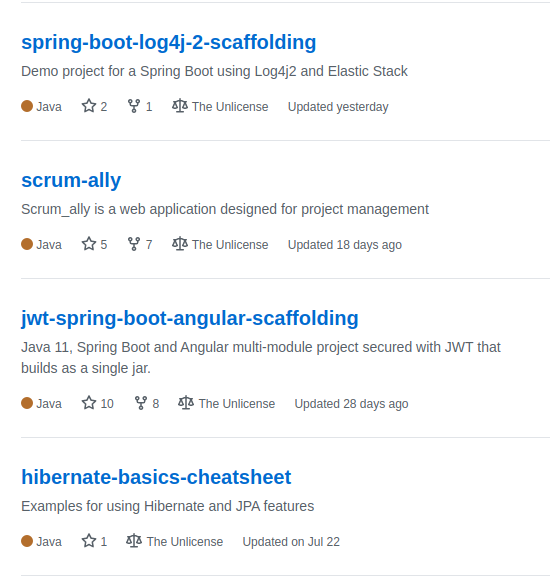
Common misconceptions about the lack of a license
The absence of a license does not constitute a permission for unlimited use of the software. E.g. when more than one person contributes to the project, the copyrights blocks usage and modification of the part created by other contributor making cooperation legally impossible. If you want to remove all restrictions, use the Unlicese – it includes a limitation of liability and explicitly states that it does not provide any warranty. Therefore, it takes away all obstructions from using your creation and protects you from being liable in case the software causes damages.
The lack of a license doesn’t explicitly mean that no one has any rights to your software. E.g. when you share your project in a public repository on GitHub, you have to accept its Terms of Service which grants others the right to view and fork your work. What’s more, the copyrighted works can also be used without a license from the copyright owner under limitations and exceptions to copyright.
Learn more on choosing an open source license
Spending some time to pick a license is just another form of applying best practices and taking care about your daily work. You can find additional information on the subject by browsing the following links:
- Limitations and exceptions to copyright
- Non-Software Licenses
- GitHub help on Licensing a repository
- How to add license to an existing GitHub project
Photo by Julyo Saenz from Pexels
